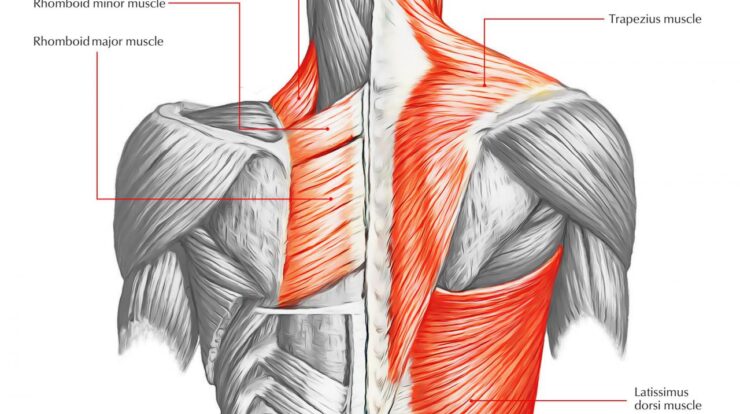
Tired of pricey dental visits for gum disease? Discover how to cure gum disease without a dentist using natural remedies, lifestyle changes, and more in this comprehensive guide.
Gum disease, also known as periodontal disease, is a common problem that can lead to serious health issues if left untreated. The good news is that there are plenty of effective ways to prevent and treat gum disease without resorting to expensive dental procedures.
Home Remedies for Gum Disease

Gum disease is a common condition that can cause pain, bleeding, and swelling of the gums. While it is important to see a dentist for regular checkups and cleanings, there are also a number of home remedies that can help to improve gum health.
These remedies can help to reduce inflammation, kill bacteria, and promote healing. However, it is important to note that they are not a substitute for professional dental care.
There are several ways to treat gum disease without visiting the dentist. One common method is to use an antiseptic mouthwash, which can help to kill bacteria and reduce inflammation. Another option is to use a saltwater rinse, which can also help to reduce inflammation and promote healing.
For more information on how to cure gum disease without a dentist, click here .
Saltwater Rinse
Saltwater rinse is a simple and effective way to reduce inflammation and kill bacteria in the mouth. To make a saltwater rinse, dissolve 1/2 teaspoon of salt in 8 ounces of warm water. Rinse your mouth with the solution for 30 seconds, then spit it out.
If you’re wondering how to cure gum disease without a dentist, you’re not alone. Gum disease is a common problem that can lead to serious health issues if left untreated. While it’s always best to see a dentist for professional treatment, there are some things you can do at home to help improve your gum health.
For more information on how to cure gum disease without a dentist, check out this article: How to Cure Gum Disease Without a Dentist .
Saltwater rinse can be used several times a day, as needed.
Hydrogen Peroxide Rinse
Hydrogen peroxide is a natural antiseptic that can help to kill bacteria and reduce inflammation. To make a hydrogen peroxide rinse, mix 1 part 3% hydrogen peroxide with 2 parts water. Rinse your mouth with the solution for 30 seconds, then spit it out.
If you’re dealing with gum disease, you might be wondering if there’s a way to cure it without having to go to the dentist. The good news is that there are some things you can do at home to help improve your gum health.
Check out how to cure gum disease without a dentist for more information.
Hydrogen peroxide rinse should not be used more than once a day, as it can be harsh on the gums.
Tea Tree Oil
Tea tree oil is an essential oil that has antibacterial and anti-inflammatory properties. To use tea tree oil for gum disease, add a few drops of the oil to a glass of water and rinse your mouth with the solution for 30 seconds.
Spit out the solution and rinse your mouth with water.
Tea tree oil can also be applied directly to the gums with a cotton swab. However, it is important to dilute the oil with water before using it, as it can be irritating to the skin.
Aloe Vera
Aloe vera is a plant that has anti-inflammatory and healing properties. To use aloe vera for gum disease, apply a small amount of the gel from an aloe vera leaf to the gums. Massage the gel into the gums for a few minutes, then spit it out.
Aloe vera can be used several times a day, as needed.
Green Tea
Green tea contains antioxidants that can help to reduce inflammation and protect the gums from damage. To use green tea for gum disease, brew a cup of green tea and let it cool. Rinse your mouth with the tea for 30 seconds, then spit it out.
Green tea can be used several times a day, as needed.
Dietary Supplements
There are a number of dietary supplements that can help to improve gum health. These supplements include:
- Vitamin C
- Vitamin D
- Calcium
- Omega-3 fatty acids
Talk to your doctor before taking any dietary supplements, as some supplements can interact with medications or other health conditions.
Oral Hygiene Techniques
Maintaining proper oral hygiene is crucial in preventing and treating gum disease. Here are some essential techniques to follow:
Brushing and Flossing
Brush your teeth twice daily with a soft-bristled toothbrush and fluoride toothpaste. Hold the brush at a 45-degree angle to the gum line and use gentle circular motions to remove plaque and bacteria. Floss at least once a day to clean between teeth where brushing can’t reach.
Mouthwash
Use an antibacterial mouthwash after brushing and flossing to kill bacteria and freshen breath. Choose a mouthwash that contains chlorhexidine or cetylpyridinium chloride, which are effective against gum disease bacteria.
Tongue Scraping
Use a tongue scraper to remove bacteria and debris from the tongue, which can contribute to bad breath and gum disease. Scrape your tongue gently from back to front each time you brush your teeth.
Other Oral Hygiene Aids
Consider using other oral hygiene aids such as electric toothbrushes, water flossers, and interdental brushes to enhance cleaning effectiveness and remove plaque and bacteria from hard-to-reach areas.
Dietary Modifications: How To Cure Gum Disease Without A Dentist

Maintaining a healthy diet is crucial for overall well-being, including the health of your gums. Certain foods can promote gum health, while others may contribute to gum disease. Understanding the impact of different foods on your gums can help you make informed dietary choices to maintain optimal oral health.
Foods that promote gum health include:
- Fruits and vegetables: Fruits and vegetables are rich in vitamins, minerals, and antioxidants that support gum health. They provide essential nutrients that help strengthen the gums and protect against inflammation.
- Dairy products: Dairy products are a good source of calcium, which is essential for maintaining strong teeth and bones. They also contain proteins that help protect the gums from bacteria.
- Whole grains: Whole grains provide fiber, which helps clean the teeth and gums and reduce the risk of plaque buildup.
Foods that may contribute to gum disease include:
- Sugary foods and drinks: Sugary foods and drinks feed the bacteria in the mouth, leading to plaque formation and gum disease. They can also contribute to tooth decay, which can weaken the teeth and make them more susceptible to gum disease.
- Processed foods: Processed foods are often high in unhealthy fats, sodium, and sugar, which can contribute to inflammation and gum disease.
- Sticky foods: Sticky foods, such as candy and dried fruit, can stick to the teeth and provide a breeding ground for bacteria, increasing the risk of gum disease.
In addition to avoiding foods that contribute to gum disease, it is important to consume foods that provide essential vitamins and minerals for gum health. These include:
- Vitamin C: Vitamin C is an antioxidant that helps protect the gums from damage and inflammation.
- Vitamin D: Vitamin D helps regulate the immune system and reduce inflammation, which can benefit gum health.
- Calcium: Calcium is essential for strong teeth and bones, and it also helps protect the gums from bacteria.
Maintaining a balanced diet that includes plenty of fruits, vegetables, whole grains, and dairy products can help promote gum health and reduce the risk of gum disease. By making healthy dietary choices, you can support the health of your gums and enjoy a healthy smile.
Sample Diet Plan for Gum Health
Here is a sample diet plan that provides essential nutrients for gum health:
- Breakfast: Oatmeal with berries, nuts, and milk
- Lunch: Salad with grilled chicken, vegetables, and whole-wheat bread
- Dinner: Salmon with roasted vegetables and brown rice
- Snacks: Fruits, vegetables, yogurt, or nuts
This diet plan provides a variety of foods that are rich in vitamins, minerals, and antioxidants, all of which are essential for maintaining gum health. By following a healthy diet and practicing good oral hygiene, you can reduce your risk of gum disease and enjoy a healthy smile.
Lifestyle Factors

Lifestyle factors play a significant role in the development and progression of gum disease. Understanding the impact of these factors and implementing changes can help reduce your risk and improve your oral health.
Smoking is a major risk factor for gum disease. The chemicals in cigarettes damage the gum tissue and make it more susceptible to infection. Alcohol consumption can also contribute to gum disease by reducing the flow of saliva, which is essential for maintaining a healthy oral environment.
Stress
Stress can weaken the immune system, making the body more vulnerable to infection. Chronic stress can also lead to poor oral hygiene habits, such as neglecting to brush and floss regularly.
To reduce your risk of gum disease, it’s important to quit smoking, limit alcohol consumption, and manage stress levels. Regular dental checkups and professional cleanings are also essential for maintaining good oral health and preventing gum disease.
Alternative Therapies

In addition to conventional dental treatments, there are several alternative therapies that may offer complementary benefits for gum disease. These therapies aim to promote healing, reduce inflammation, and improve overall oral health.
If you’re dealing with gum disease, you might be wondering if there’s a way to cure it without going to the dentist. The good news is that there are some things you can do at home to help improve your gum health.
Check out this article for more information on how to cure gum disease without a dentist.
Acupuncture
Acupuncture involves inserting thin needles into specific points on the body to stimulate the release of endorphins, which have pain-relieving and anti-inflammatory effects. Studies have shown that acupuncture may help reduce gum inflammation, improve blood flow to the gums, and promote healing.
Laser Therapy, How to cure gum disease without a dentist
Laser therapy uses low-level lasers to stimulate tissue repair and reduce inflammation. It has been shown to promote healing of gum tissue, reduce pain, and improve the effectiveness of traditional dental treatments.
Ozone Therapy
Ozone therapy involves exposing the gums to ozone gas, which has antibacterial and anti-inflammatory properties. It may help kill bacteria that cause gum disease, reduce inflammation, and promote healing.
Finding Qualified Practitioners and Ensuring Safety:When considering alternative therapies, it is important to find qualified practitioners who have received proper training and have a good safety record. Look for practitioners who are certified by reputable organizations and who use sterile equipment and follow strict safety protocols.
Last Word
By following the tips and advice in this guide, you can improve your gum health, prevent gum disease, and enjoy a healthier smile without breaking the bank. Remember, prevention is always better than cure, so make sure to practice good oral hygiene, eat a healthy diet, and avoid smoking and excessive alcohol consumption to keep your gums healthy for life.
User Queries
Can I cure gum disease at home?
Yes, many natural remedies and lifestyle changes can help improve gum health and prevent or treat gum disease.
How long does it take to cure gum disease naturally?
The time it takes to cure gum disease naturally varies depending on the severity of the condition and the individual’s response to treatment. However, with consistent effort, most people can see significant improvement within a few weeks or months.
Is it possible to reverse gum disease?
While it is not possible to completely reverse gum disease, it is possible to stop its progression and improve gum health through natural remedies and lifestyle changes.





